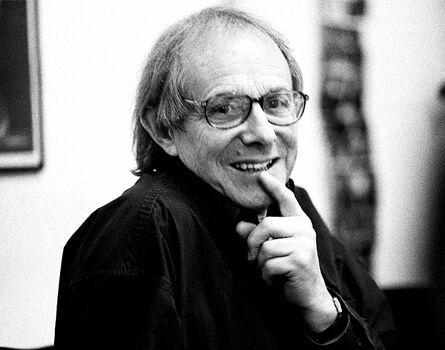With English rock band Radiohead due to play in Tel Aviv next week, BDS activists have ramped up the pressure. Two op-eds were published in the British press in response to frontman Thom Yorke’s criticism of the movement, in an interview he had with Rolling Stone magazine last month:
The kind of dialogue that they want to engage in is one that’s black or white. I have a problem with that… It’s deeply disrespectful to assume that we’re either being misinformed or that we’re so retarded we can’t make these decisions ourselves. I thought it was patronizing in the extreme. It’s offensive…
All these people to stand there at a distance throwing stuff at us, waving flags, saying, “You don’t know anything about it!”… imagine how upsetting that it’s been to have this out there. Just to assume that we know nothing about this. Just to throw the word “apartheid” around and think that’s enough… It’s such an extraordinary waste of energy. Energy that could be used in a more positive way… it’s really upsetting that artists I respect think we are not capable of making a moral decision ourselves after all these years… All of this creates divisive energy. You’re not bringing people together. You’re not encouraging dialogue or a sense of understanding.
Join the fight for Israel’s fair coverage in the news
 In The Guardian, musician and activist Dave Randall defends BDS against the anti-Semitism charge by accusing BDS opponents of “Labelling all critics of Israel antisemitic… a bullying tactic used to suppress opposition.”
In The Guardian, musician and activist Dave Randall defends BDS against the anti-Semitism charge by accusing BDS opponents of “Labelling all critics of Israel antisemitic… a bullying tactic used to suppress opposition.”
Of course not all critics of Israel are accused of anti-Semitism, as there are many people who legitimately criticize Israel yet oppose BDS; and BDS is not just criticism of Israeli policies but is a campaign based on lies and slandering the Jewish state in its entirety. Randall writes “it’s not true that Israel has been “singled out” for criticism,” because boycott is only the right tactic in specific situations when two criteria are met:
“1. That those on the sharp end of oppression – in this case the Palestinians living in Israel and the occupied territories – are calling for a boycott. Not just one or two of them, but a majority of civil society.
2. That the boycott has a realistic chance of having a positive impact on the situation.”
Randall could not be more wrong.
On the first point, Palestinians may call for a boycott – but most wouldn’t implement it. Palestinians are often treated in Israeli hospitals, Palestinians and Israelis work together, and Palestinian stores sell Israeli products, which are routinely used by Palestinians as part of their daily life.
A week after endorsing BDS, Hamas officials were photographed drinking Israeli products at a recent meeting. Stay thirsty Hamas pic.twitter.com/nR2DodeTMB
— COGAT (@cogatonline) July 11, 2017
On the second point, only someone completely deluded would say BDS is having a “positive impact.” It is true that it may have harmed Israel’s image in the international community, but BDS causes more harm than good for Palestinians, especially those who work with Israelis, and disproportionately affects Jews outside of Israel.
Ken Loach

In another op-ed, this time in The Independent, director Ken Loach says that “their [Radiohead’s] stubborn refusal to engage with the many critics of their ill-advised concert in Tel Aviv suggests to me that they only want to hear one side – the one that supports apartheid.”
Loach says that by playing in Tel Aviv the band will be undermining the Palestinians’
struggle to end Israel’s military occupation, which turned 50 this month, its colonisation of their land, and its system of apartheid that dominates every aspect of their lives… Palestinian men, women and children are forced from their homes only to see Israeli settlers move in, they watch their homes being demolished as illegal construction of Jewish-only homes proceeds on confiscated Palestinian land, they travel on racially segregated roads and face humiliation at Israeli checkpoints and roadblocks.
Loach has completely missed the very significant point that Thom Yorke made, about anti-Israel activists’ patronizing assumption that everyone who disagrees with them – who either supports Israel or simply opposes BDS – must not know the reality of the situation and so must be incapable of making informed decisions.
Loach has not only missed that point but demonstrated that it is BDS supporters, not its opponents, who are ignorant of the facts. He accuses Radiohead of only wanting to “hear one side,” but the reality is that if BDS supporters and anti-Israel activists like himself ever opened their minds to learning the truth, they would have no basis to accuse Israel of apartheid and to boycott the country. But BDS is not about truth and it isn’t about helping the Palestinians. BDS is about demonizing Israel, undermining its right to defend itself and its very right to exist as the Jewish state, and advocating for its destruction.
— Thom Yorke (@thomyorke) July 11, 2017
Loach ignores history and the thousands of years old Jewish connection to Israel, so that he can accuse Israel of “its colonisation of their [Palestinians’] land.” He ignores that Palestinians are ruled by their own government, as well as countless other relevant facts, so that he can falsely accuse Israel of apartheid. He completely ignores the decades of barbaric Palestinian terrorism against Israelis so that Israeli security measures seem unnecessary, unjustified, and malicious.
The article ends: “Remember what the South African anti-apartheid hero, Desmond Tutu, often told us: there is no neutrality in situations of grave injustice. Radiohead need to decide if they stand with the oppressed or with the oppressor. The choice is simple.”
This is exactly the problem that Thom Yorke referred to: “The kind of dialogue that they want to engage in is one that’s black or white.”
Reducing the conflict to “Israel = bad; Palestinians = good” is not only false and unhelpful but is counterproductive to efforts for tolerance, dialogue, education, and improved relations between Israelis and Palestinians. All it does is make the activists feel better about themselves. Thom Yorke understands this. We can only hope that other artists follow his lead.
For resources on BDS, click
Featured image: CC BY-SA monophonicgirl; Ken Loach CC-BY-SA Wikimedia Commons; Dave Randall via YouTube

